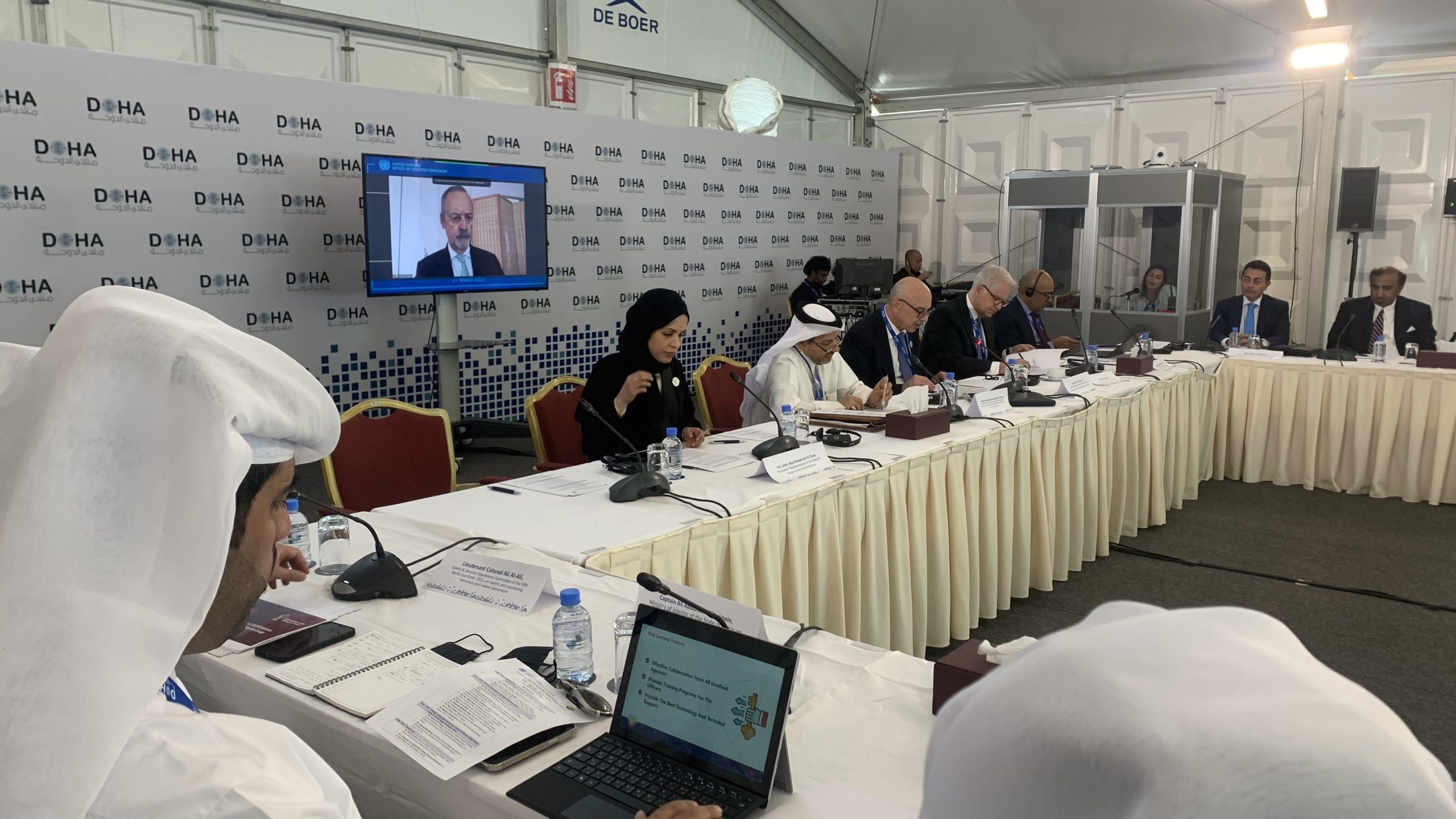The Gulf state contributes $15m on an annual basis to the organisation.
Qatar is set to extend its partnership with the United Nations Office for Counter-Terrorism (UNOCT) for another three years between 2024 and 2026, the Gulf state’s UN envoy announced on Sunday.
The five-year agreement was signed initially between Doha and the intergovernmental organisation during the 18th edition of the Doha Forum in 2018. The agreement also entailed the establishment of a UN Counter-Terrorism Office in Doha, which was inaugurated last year.
The office was the first to be established in the region.
The announcement of the extension of the agreement was assigned at the 20th edition of the Doha Forum by Qatar’s Permanent Representative to the United Nations Sheikha Alya Ahmed bin Saif Al -Thani.
The session was also the Fourth High-Level Strategic Dialogue between Qatar and the UNOCT, also attended by the UNOCT’s Under-Secretary General Vladimir Voronkov and Major General Abdul Aziz Abdullah Al-Ansari, Chairman of the National Counter-Terrorism Committee at Qatar’s Minister of Interior.
Through the agreement, Qatar contributes $15 million to the UNOCT on an annual basis, amounting to $75 million. The agreement comes as part of Qatar’s regional and global counterterrorism efforts.
The Gulf state has long condemned and rejecting all forms of terrorism in various parts of the world, whilst calling for the need to tackle such threats “through bilateral, regional and multi-lateral cooperation.”
In 2015, Qatar and the United Nations Office on Drugs and Crime (UNODC) signed a $49 million agreement to fund projects that focus on “countering violent extremism through prisoner rehabilitation and social integration programs, and youth education for justice”.
The Gulf state is also a founding member of the Global Counter-terrorism Forum and is the only country from the Middle East that is a board member of the Global Community Engagement and Resilience Fund (GCERF).
In 2020, the UN General Assembly unanimously passed resolution 74/275 on May 28 to establish September 9 as the International Day to Protect Education from Attack. This was an initiative proposed by Sheikha Moza bint Nasser, Chairperson of Education Above All Foundation (EAAF) and a member of the UN Sustainable Development Goals Advocates Group.
Qatar has also played a key mediating role in different parts of the world in an effort to maintain stability across the world.
This was seen in 2020 when it mediated between the former Afghan administration and the Taliban by hosting the intra-Afghan negotiations. It also facilitated talks between the Taliban and the US in the same year, which resulted in the signing of the Doha agreement.
More recently, Qatar is hosting talks between all Chadian sides in an effort to pave the way for elections in the country.
Follow Doha News on Twitter, Instagram, Facebook and Youtube







